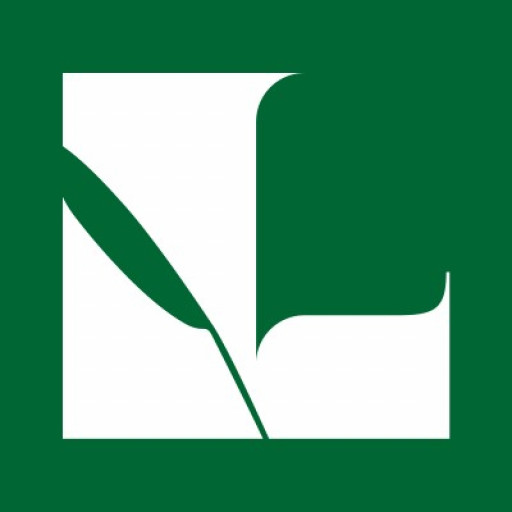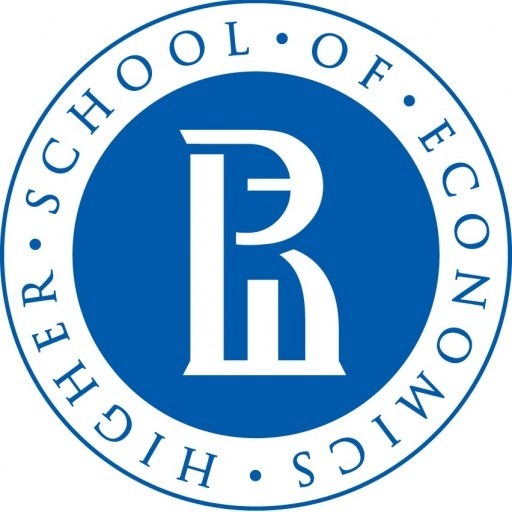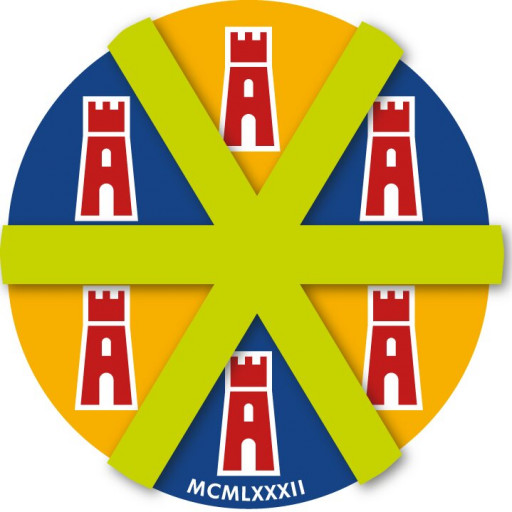Photos of university / #uva_amsterdam
The Bachelor's degree in Political Science at the University of Amsterdam offers students a comprehensive understanding of political systems, government institutions, policy processes, and international relations. This program is designed to equip students with critical analytical skills, enabling them to evaluate political phenomena from multiple perspectives. Throughout the program, students explore core topics such as political theory, comparative politics, international politics, and public administration, while also gaining practical skills in research, communication, and policy analysis. The curriculum emphasizes both theoretical foundations and real-world applications, preparing graduates for diverse careers in government, international organizations, NGOs, journalism, or further academic study. Students have the opportunity to engage in an active learning environment through seminars, workshops, and internships, which foster a deep engagement with contemporary political issues. International exposure is a key component, with options for exchange programs and collaborations with global institutions. The program also encourages critical thinking about current political challenges including democracy, human rights, security, and environmental policy. With dedicated faculty members who are experts in their fields, students receive personalized academic guidance and mentorship. The flexible structure allows students to tailor their studies according to their interests, integrating minors and elective courses across various disciplines. Upon completion, graduates will possess a solid foundation in political science, analytical tools, and practical skills necessary to contribute thoughtfully to society and navigate the complexities of modern politics. The University of Amsterdam’s vibrant academic community, combined with its strategic location in one of Europe's most dynamic cities, provides an ideal setting for aspiring political scientists to thrive academically and professionally.
First year
Your first year is an overview of the field of politics. You encounter key concepts such as conflict, cooperation, interests and power, as well as the big questions that political scientists ask about current societal trends and the political systems which we observe worldwide. Alongside courses on public policy, political thought, international law and contemporary history, we introduce you to active research in political science. Your year-long tutorial and lab groups train you in analytical and critical thinking, as well as in writing, debating and presentation skills.
Second year
In the second year, you choose your specialisation from one of the following fields: International Relations, Public Policy and Governance, Comparative Politics or Political Theory. Courses cover the major issues in contemporary politics from social inequality and justice to political economy across both democratic and authoritarian regimes. A research project of your choice brings together the academic, methodological and practical skills of the first four semesters. Your career orientation is further expanded in the third year.
Third year
The final year provides yet more opportunity for specialisation through your choice of electives, covering practically all issues and regions in the world. You may also choose a work placement, study abroad or complete a minor, or learn an additional language. You will round off your Bachelor’s programme by researching and writing your own thesis under the supervision of experienced senior lecturers in a small, specialised group context.
Graduation
You will be awarded the degree of Bachelor of Science (BSc) in Political Science. This qualifies you for Master’s or Research Master’s programmes in the social sciences and related disciplines, as well a range of professional career opportunities.
Different forms of Education
1. Lectures
The lectures provide a general introduction to the course’s topics and literature. During the lectures, our lecturers clarify the weekly readings. The lectures are given in combination with small-scale tutorials.
2. Tutorials
In the tutorial groups, you will discuss certain aspects of the lectures and literature in smaller groups of about 20 to 25 students. This form of education encourages you to formulate your own opinion. A teacher will give you assignments to do individually or in cooperation with other students. You will learn how to prepare and conduct research, and how to interpret, report and present the results.
3. Projects
The projects are intensive classes scheduled for four weeks in which you will extend your knowledge on a topic of your choice, usually in full or partial cooperation with other students.
4. Examination
Most courses are concluded with one or more tests or some other form of assessment, such as a written exam, a presentation or a paper.
How many hours do you spend on your study?
Workload: 40 hours a week.
Contact hours: Approximately 12 hours a week; project periods in your first and second year are full-time. Later on in the programme, the number of contact hours decreases.
Self-study: approximately 28 hours.
Internships
An internship often proves to be a stepping stone to professional practice for many students. While gaining work experience, you also start to think about the possibilities within an organisation.
There are possibilities to do internships in a wide range of organisations, from the UN and the EU to institutions such as foreign embassies, ministries and local authorities, as well as think tanks, banks, political parties and organisations such as Greenpeace, Amnesty International, Cordaid, the International Organization for Migration and the Red Cross.
There are also in-house training opportunities; for example, to work as a junior assistant in the research of professionals and PhD candidates. A supervisor will support you during internship.
Studying abroad
The UvA takes part in international cooperation and exchange programmes. If you would like to pursue part of your studies abroad, you will be supported by the International Office (of the College of Social Sciences). Each year, dozens of students make use of the network within the Political Science Department and follow their studies in Spain, France, England, Germany, Italy, Scandinavia, the USA, Canada, Latin America, Asia, Iran, Iraq, Morocco and Australia.
The College of Social Sciences is looking for excellent students who are to finish their Bachelor’s degree with good results within three years. Applicants should have a strong interest in politics and a high level of English-language proficiency. The ideal candidate is interested in the dynamic world of politics in all its aspects, including questions of conflict and war, social diversity and the changing global economy. He or she aspires to become a well-informed, critical, socially engaged analyst, researcher, decision-maker, activist or consultant who makes a difference in the world in which we live.
The application procedure depends on where you completed your prior education.
Previous education
Students will need to have completed their secondary school diploma before the start of the BSc in Political Science. The diploma (to be) obtained should be equivalent to a Dutch VWO diploma with mathematics and English taken as subjects on upper secondary / university preparatory education level and if and when applicable, both subjects should be included in the final secondary school or university entry examinations. Also, students are expected to have a basic knowledge of modern history.
Please see the list of approved qualifications here below for an overview on diplomas that are considered equivalent to the Dutch VWO-diploma. The list is far from exhaustive, will be updated on a regular basis and is meant for general guidance only. No rights can be derived from it. All applications will be evaluated on an individual basis by professional diploma evaluators.
If your qualification is not on the list, it does not necessarily mean you cannot be admitted and you are invited and encouraged to apply.
Mathematics
In general, mathematics has to be included in the upper secondary education curriculum up until the final year and final examinations. The level of mathematics should be equivalent to at least the Dutch level of VWO mathematics: Wiskunde C. There are no further minimum grade requirements.
An alternative route to meet the mathematics entry requirement may be to complete one of the English taught mathematics courses and exams offered by the James Boswell institute in The Netherlands. We will accept VWO certificates in mathematics A, B and C. Another alternative route may be to submit a SAT subject test Mathematics Level 1 score of at least 610 or an ACT Mathematics score of at least 27.
Language proficiency
All students must be able to read textbooks, understand lectures, take part in classroom discussions and write extensive academic papers. A high level of language proficiency is expected of all applicants. The programme is fully taught in English supplemented by Dutch-language tutorial groups and elective courses for those who wish. In any case, a good command of the English language is essential and needs to be supported by a sufficient test or school examination score as stipulated below.
English test scores
Non-native speakers of English are required to submit a valid English test score which is not more than 2 years old.
- TOEFL Internet-based test: minimum total score 92; minimum score on each component 20
- TOEFL Paper-based test: minimum score on each component 20; there is no minimum total score
- IELTS test: minimum score 6.5, with at least 6 for each individual test component
- Cambridge International Examinations: minimum scores C (CAE), C (CPE)
Students are strongly encouraged to make early preparations for the test. Please refer to the contact details of test centers below. In case of insufficient scores, applicants can do a re-sit as long as deadlines are respected. Without sufficient test scores, you do not meet our admission requirements.
Exemptions
The following applicants are exempted from submitting an English test score:
Applicants who (will) have obtained their diploma taught in English in one of the following countries:
- Australia
- Canada
- New Zealand
- Ireland
- United Kingdom
- United States of America
As a student in the Netherlands you will pay an annual tuition fee. There are two different fees: the statutory fee and the institutional fee. Which fee you pay depends on your nationality, your degree programme and whether you study full-time, part-time or dually.
Study costs
In addition to your tuition fees, you will need to include a number of other study costs in your budget, such as books, stationary, excursions, a laptop or other equipment. These costs vary per programme but academic books and study materials will usually cost you around €550 per year.
Living costs
Keep in mind that living in Amsterdam also includes costs such as accommodation, food and public transport.
Scholarships
The UvA has established two scholarship programmes specifically designed to offer talented and motivated non-EU/EEA students the opportunity to pursue a degree at the UvA. These scholarship programmes are the Amsterdam Merit Scholarship and the Amsterdam Excellence Scholarship.
In addition to the scholarships mentioned above, other forms of financial support for studying in the Netherlands are available to students. In some cases, students may also make use of the Dutch government’s system of student loans (studiefinanciering).
The Bachelor's program in Political Science at the University of Amsterdam offers a comprehensive introduction to the fundamental concepts, theories, and methods used to analyze political systems, behavior, and institutions. This program aims to equip students with the critical thinking and analytical skills necessary to understand complex political issues at local, national, and global levels. The curriculum is designed to provide a solid foundation in political science, including key areas such as comparative politics, international relations, political theory, and public policy. Students will engage with a variety of teaching methods, including lectures, seminars, workshops, and independent research projects, to foster a deep understanding of political dynamics and develop their academic writing and research skills.
Throughout the program, students have the opportunity to specialize in specific areas of interest through elective courses, which allow for customization of the academic path. The program emphasizes the importance of empirical research and encourages students to apply theoretical knowledge to real-world political challenges. Many courses include case studies, data analysis, and fieldwork, thereby enhancing practical skills alongside theoretical understanding. The program benefits from the university’s extensive network of international partnerships, enabling students to participate in exchange programs and internships that provide practical experience and cultural diversity.
The university’s location in Amsterdam provides students with proximity to governmental bodies, NGOs, international organizations, and major media outlets, which enriches their learning environment and offers numerous opportunities for internships and networking. Graduates of the program are well-prepared for careers in public administration, international organizations, political consultancy, journalism, and further postgraduate study in political science or related fields. The program also fosters critical engagement with societal issues such as democracy, human rights, and global governance, encouraging students to think critically about the role of politics in shaping societal outcomes. Overall, the Bachelor’s in Political Science at the University of Amsterdam is designed to develop informed, critical, and active citizens capable of contributing to public discourse and policy in an increasingly interconnected world.









